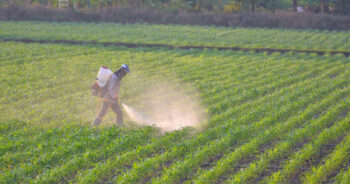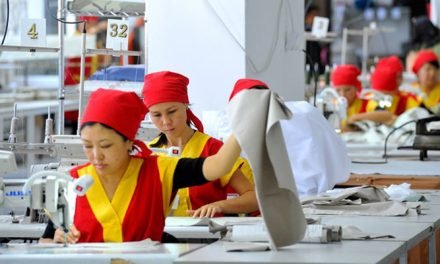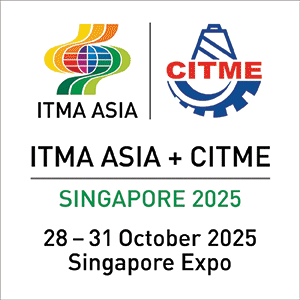 The Better Cotton sustainability initiative and its partners in the Integrated Pest Management (IPM) Coalition are demanding a global phase-out of highly hazardous pesticides (HHPs) across agricultural supply chains.
The Better Cotton sustainability initiative and its partners in the Integrated Pest Management (IPM) Coalition are demanding a global phase-out of highly hazardous pesticides (HHPs) across agricultural supply chains.
As Better Cotton notes, HHPs have historically been used to combat the threat posed by pests to cotton and other crops. Exposure to such pesticides can, however, jeopardise the health and safety of agricultural workers despite the availability and utilisation of personal protective equipment.
Ahead of the fifth session of the International Conference on Chemicals Management (ICCM5), set to take place in Bonn, Germany, from 25-29 September, Better Cotton and fellow coalition founding members, are therefore urging authorities to enforce regulatory frameworks that would mandate the elimination of highly hazardous agrochemicals.
The coalition, which also includes Fairtrade, Rainforest Alliance, the Sustainable Agriculture Network (SAN), and the Forest Stewardship Council (FSC), has outlined a series of recommendations it hopes will provoke action on HHPs in agriculture.
These include committing to the global phase-out of HHPs through coordinated and time-bound actions, and supporting agricultural producers in their efforts to transition to sustainable agriculture practices, such as agroecology and IPM, which are aimed at minimising or excluding hazardous pesticide use by providing enabling policy frameworks and funding.
The recommendations also call for greater investment in research and innovation to develop and promote safer alternatives to HHPs, ensuring they are affordable and accessible to farmers worldwide, as well as promoting awareness, education programmes and trainings to support farmers to adopt IPM practices and make informed pest control choices.
Alan McClay, Chief Executive Officer, Better Cotton, said: “Only a global response to the use of highly hazardous pesticides in agricultural supply chains will ensure that farmers and their land are protected from the harmful impacts of such formulations. The IPM Coalition exists to bang the drum on this important issue and we hope authorities will join us in driving change.”
The coalition is also calling for greater collaboration between governments, industry, and civil society to prevent subsidies for HHPs, and to strengthen regulatory frameworks and enforcement mechanisms to ensure an effective HHP phase-out.
Better Cotton says it has made significant progress in its efforts to eliminate the use of HHPs on cotton farms. In India alone, between the 2014/15 and 21/22 cotton seasons, Better Cotton Farmers cut their use of HHPs from 64 percent to 10 percent, whilst those using monocrotophos – a pesticide classed as highly toxic by the World Health Organization – dropped from 41 percent to just 2 percent.





















